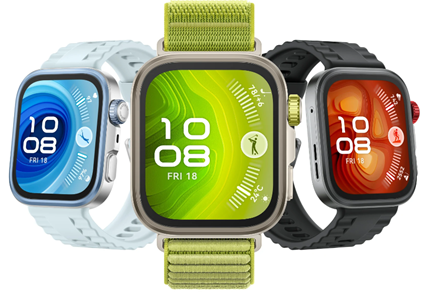Stress affects focus, energy, and long-term health. Many people are turning to smartwatches like the huawei watch Fit 4 Pro as a tool for daily stress management. These devices now offer more than just fitness tracking—they also monitor stress signals, suggest calming routines, and help users understand their emotional patterns. Smartwatches can’t eliminate stress completely, but they can raise awareness and support healthy habits. The real value comes from combining real-time feedback with action-based prompts that guide users toward better balance.

How Smartwatches Support Stress Management
Smartwatches use simple, measurable indicators to track and respond to stress. While not a medical diagnosis, these insights help users manage tension more effectively.
Track physiological signs of stress
Most smartwatches detect stress using heart rate variability (HRV). This metric looks at the time between heartbeats. Lower variability often suggests higher stress. The watch collects this data continuously or during rest periods, then displays a stress score or trend over time. Some models also factor in sleep quality, activity levels, and even skin temperature. This adds context to the stress reading, showing how your body responds across different parts of the day. Users benefit from seeing patterns. For example, high stress may appear before public speaking or during work deadlines. These insights make it easier to prepare for or respond to pressure before it builds up.
Send gentle reminders to pause
Smartwatches don’t just report stress—they encourage you to take action. When the device senses a spike in heart rate or reduced HRV, it may prompt a short break, deep breathing, or a quick walk. These suggestions often appear as vibration alerts or on-screen messages. They serve as small nudges to stop, reflect, and reset. Over time, these prompts help users build better stress responses into their routines. Some devices allow users to schedule quiet moments or breathing sessions. A one-minute pause during a busy day can lower tension and improve focus for the next task.
Offer guided breathing and mindfulness exercises
Many smartwatches include built-in relaxation tools. Breathing guides help users slow their breath and lower heart rate. These exercises use visual cues or haptic feedback to guide timing, making them easy to follow without looking at a phone. Guided meditations or mindfulness prompts are also available in some models, either preloaded or through connected apps. These can last from a minute to ten minutes, depending on the setting. Even short breathing sessions improve clarity and reduce anxiety. Users who build this habit into their day often report better emotional control and reduced tension over time.
Help users stay aware of emotional triggers
Smartwatches help people notice the connection between events and emotional states. For instance, a user might notice higher stress scores after poor sleep, long meetings, or heavy workloads. Recognizing these patterns helps users change how they approach similar situations in the future. Some watches allow users to log moods or journal brief notes after stress events. This turns raw data into meaningful self-reflection. The more users track, the more they learn about their reactions and recovery.

Reduce overreliance on phones or screens
One hidden benefit of smartwatches is how they reduce the need to check phones. With key alerts available on the wrist, users can avoid endless scrolling or app-hopping, both of which increase stress for many people. Silent notifications help maintain focus while staying informed. This improves attention during work or rest and supports better digital boundaries.
Conclusion
Smartwatches help users notice stress sooner, respond faster, and build better habits. They track physical signs, offer calming exercises, and encourage rest in the middle of busy routines. With consistent use, they turn awareness into action. Managing stress doesn’t always require big changes. A few deep breaths, a quiet pause, or simply noticing your patterns can make a big difference. Smartwatches make those moments easier to access and harder to ignore. As technology improves, these wearables will become even more effective at supporting emotional well-being—one gentle vibration, one guided breath, one better habit at a time.